EN

© Rui Meireles
A 16-time political prisoner, Virgínia Moura dedicated her life to the anti-fascist struggle and the defence of women's rights. The writer Teixeira de Pascoaes called her a ‘force of nature’. We dedicate this Portography to her.
At the age of 16, Virgínia woke up to the political struggle and took part in a student strike at the Póvoa do Varzim High School and in the protests against the murder of student João Martins Branco by the fascist police. He had left behind S. Martinho do Conde, in Guimarães, where he was born on 19 July 1915, to come with her mother, a primary school teacher, who had been posted to a school in Vila do Conde.
In the 1930s, he came to study in Porto where he met António Lobão Vital, a defender of the academic movements, who would become his lifelong companion. At the age of 18, she joined the Portuguese Communist Party and joined the International Red Aid, an organisation that supported political prisoners.
She was one of the first women to study Civil Engineering in Portugal (1943-1948) and the second woman to graduate from the Faculty of Engineering at the University of Porto. As a result of her anti-fascist political intervention, she was not allowed to practise her profession (her projects were signed off by other engineers) or have any public job. She therefore gave private tutoring in maths and physics at her office in Praça General Humberto Delgado.
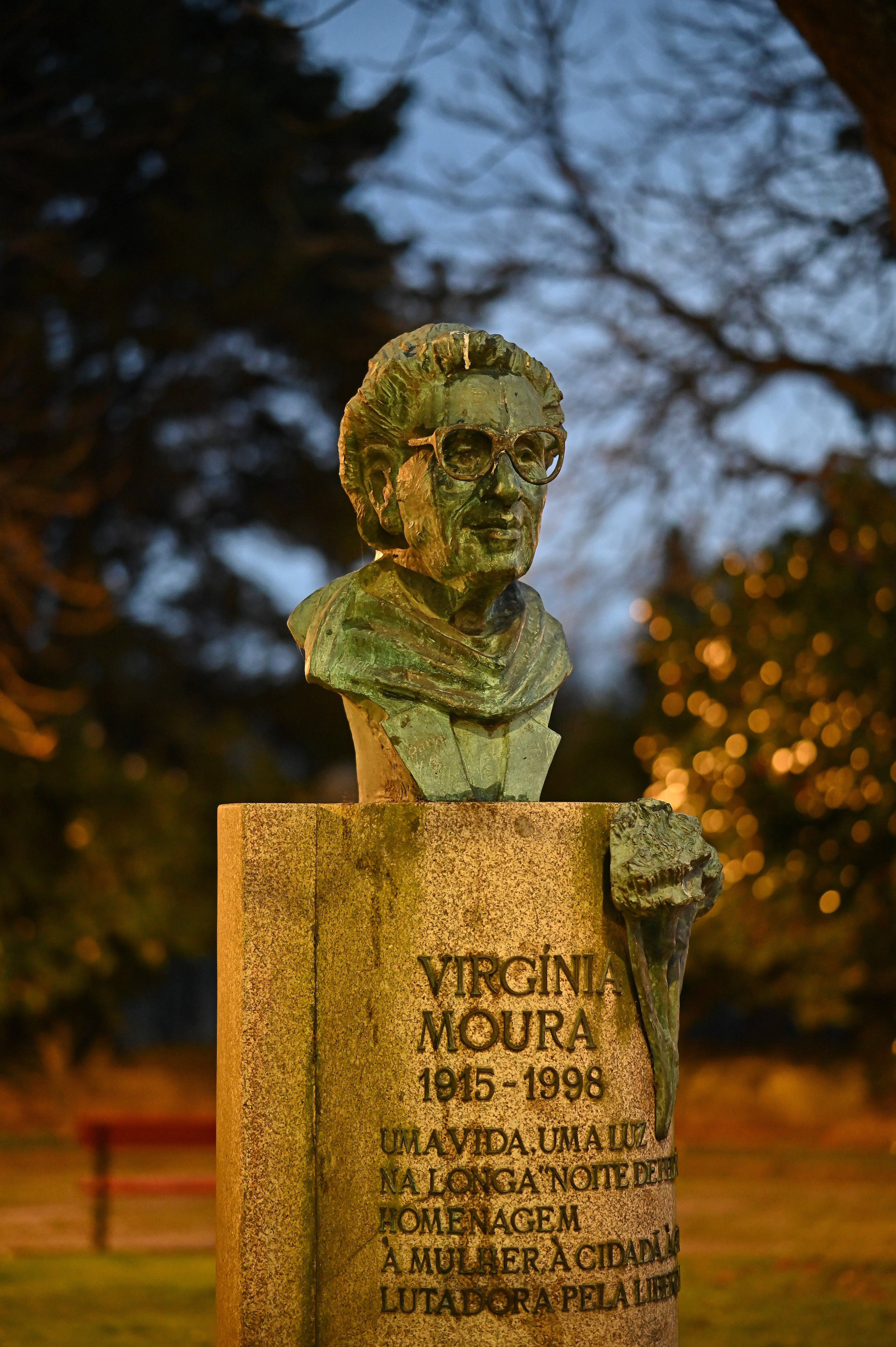
Busto de Virgínia Moura no Largo Soares dos Reis © Rui Meireles
Since 1936, under the pseudonym Maria Selma, she collaborated with various newspapers and publications, such as ‘Outro Ritmo’, ‘O Diabo’, ‘Pensamento’, ‘O Trabalho’, ‘Foz do Guadiana’, ‘Ecos do Sul’, ‘Presença’, ‘Seara Nova’, and also with the magazine ‘Sol Nascente’, of which she was a co-founder.
Her intense and courageous political activity against the Salazar regime led to her being arrested 16 times, the first time on 17 December 1949 in Porto. She was prosecuted nine times and convicted three times, having been beaten numerous times by the political police during public acts of democratic affirmation.
On 26 April 1974, she was with the people of Porto at the gates of the PIDE headquarters demanding the release of political prisoners and the arrest of the ‘pides’, which happened that day. She was invited by soldiers from the Armed Forces Movement to enter the building and celebrate freedom. Maria José Ribeiro, co-founder of the Women's Democratic Movement, a member of the Union of Portuguese Anti-Fascist Resistants (URAP) and a friend of Virgínia's, showed Agenda Porto a photograph from that day.
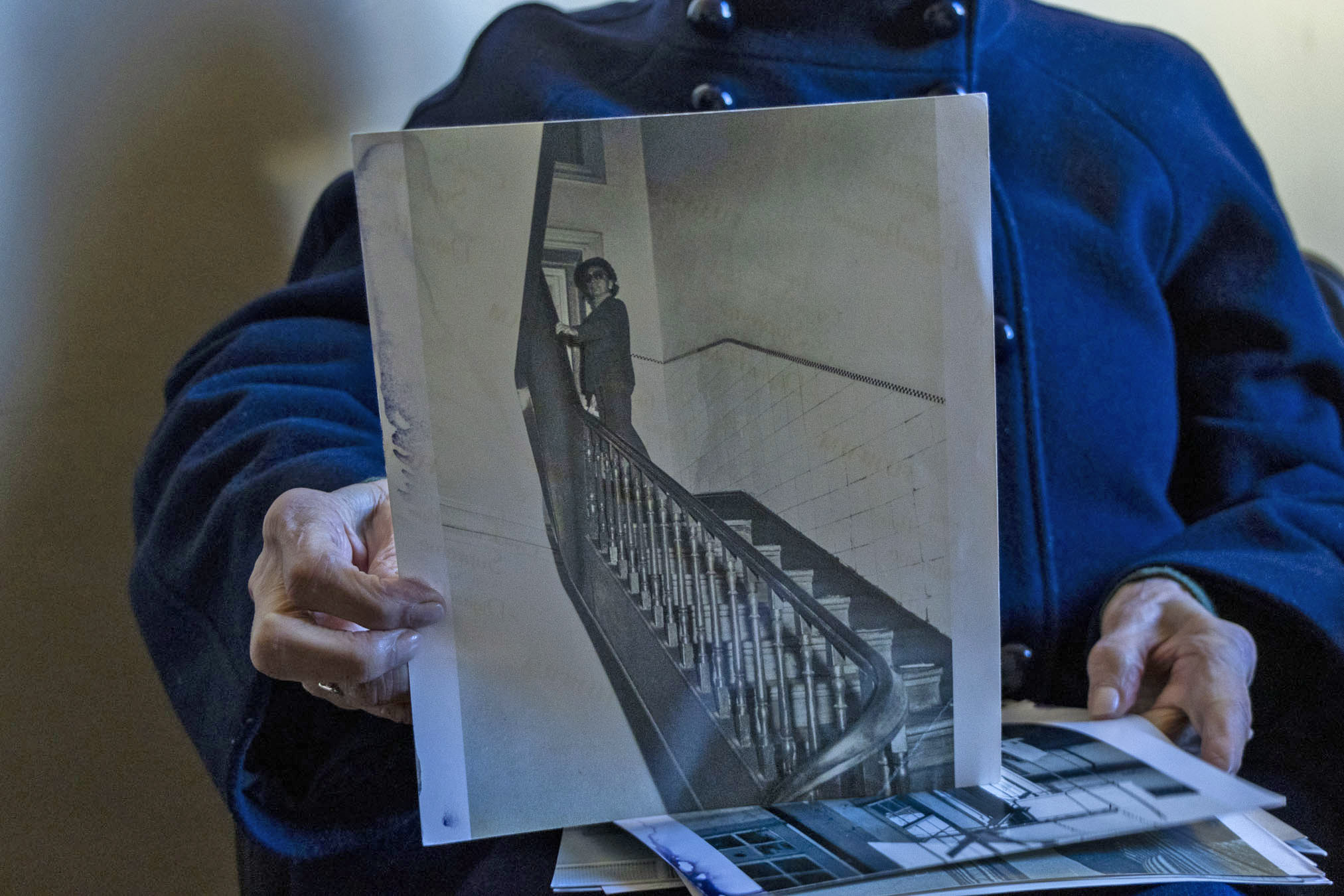
© Andreia Merca
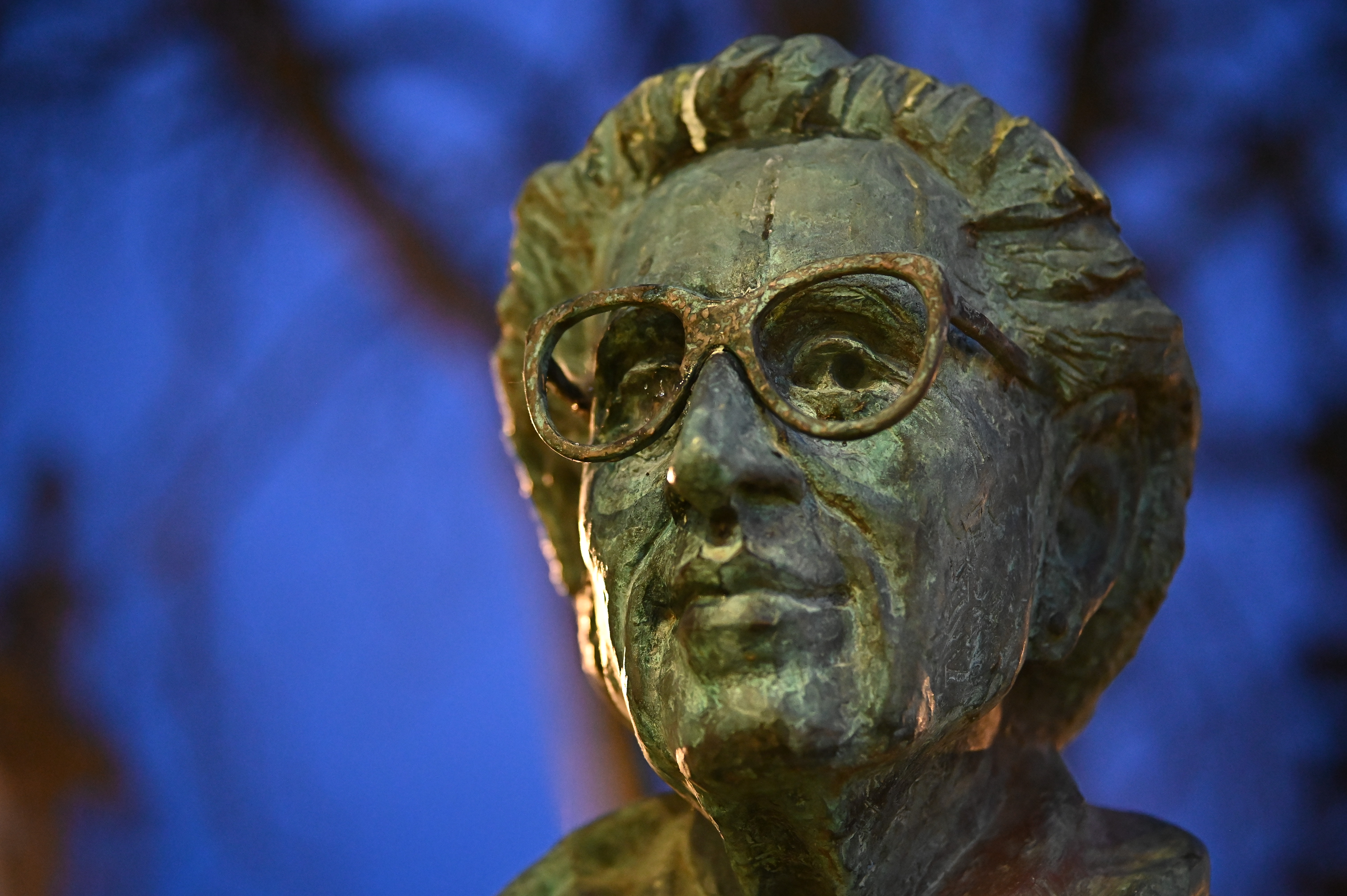
© Rui Meireles
After the 25 April Revolution, Virgínia actively participated in the construction and defence of the democratic regime. She was a member of the Assembly of the Republic and a member of the Porto Municipal Assembly. Her civic action during the dictatorship was recognised: she was awarded the Order of Liberty (1981) and the Porto City Council Medal of Merit (1995). Her name is on streets and schools in some parts of the country.
In an interview to RTP (portuguese public TV) in January 1975, Virgínia stated that ‘women cannot be made things, they cannot be someone to be bossed around’, emphasising that ‘the fight for the emancipation of women must be carried out by women and men’.
Virgínia died in Porto on 20 April 1998. A year after her disappearance and 50 years after she was first arrested by PIDE, on the initiative of twenty women democrats from Porto, and sponsored by the Municipality, a bust of her was inaugurated by sculptor Manuel Dias in front of the Military Museum, the former headquarters of the political police, where she was first arrested.
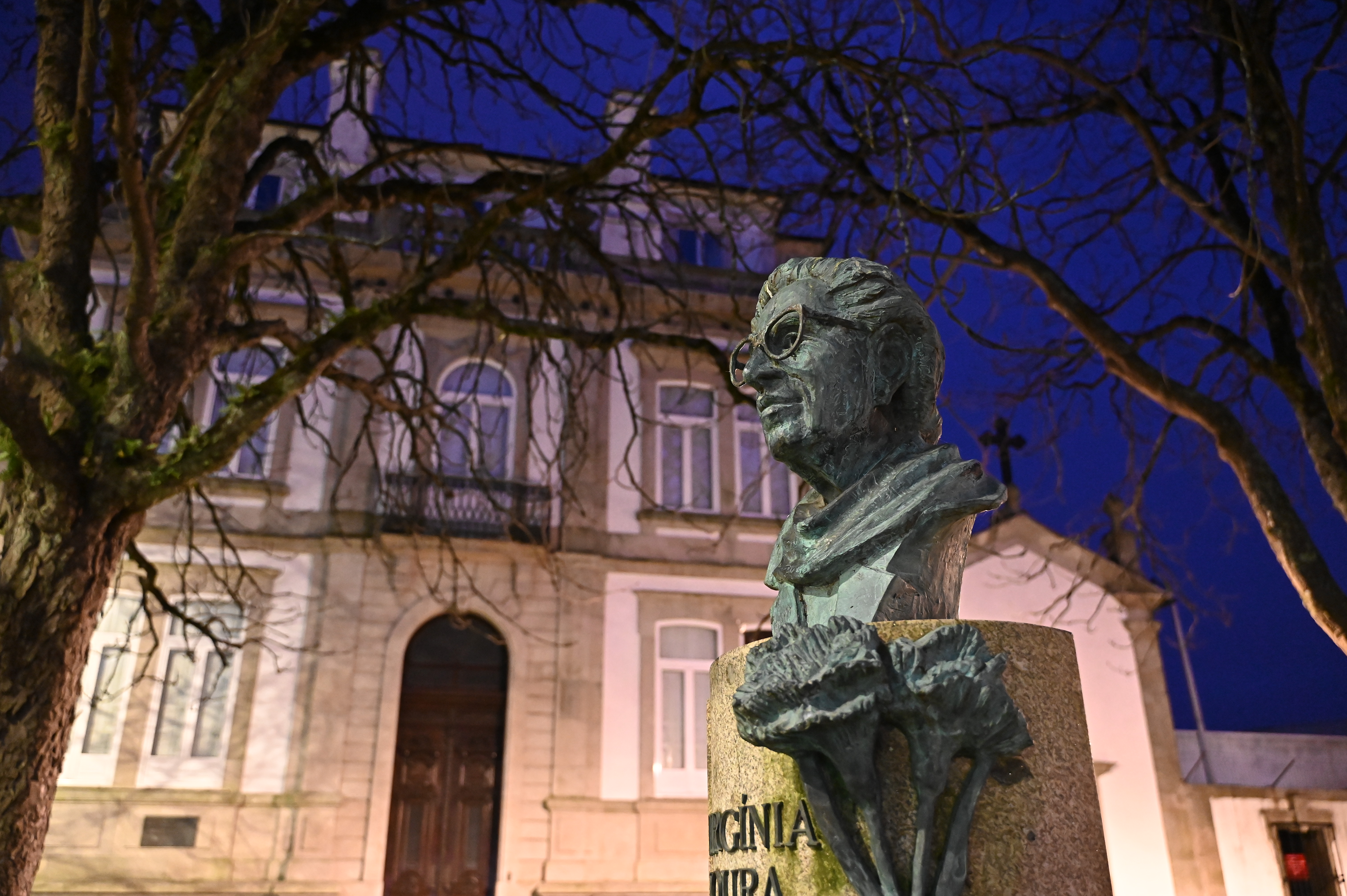
© Rui Meireles
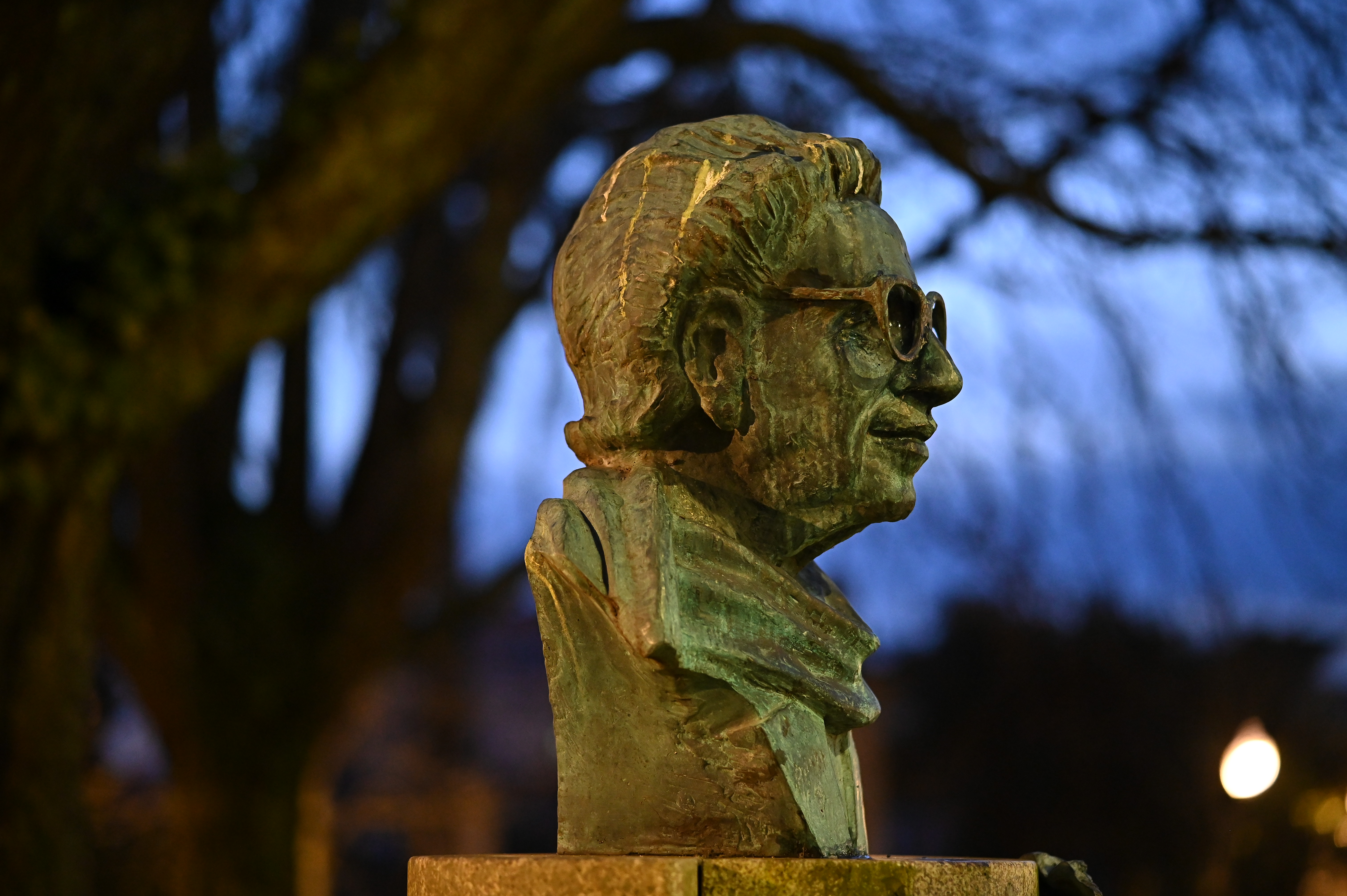
© Rui Meireles
Share
FB
X
WA
LINK
Relacionados


